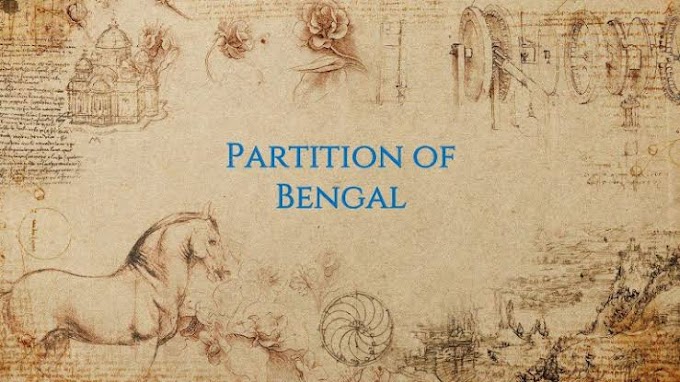INITIAL DIFFICULTIES AT THE ESTABLISHMENT OF PAKISTAN
Preface
Pakistan came into being on 14 August 1947. The emergence of Pakistan, after a long and arduous freedom movement, was infect a great victory of the democratic idea of life. The Indian Muslim happily and valiantly laid down their lives and properties to achieve a destination in which they saw the fulfillment of their dreams of living an independent life free from Hindu or British dominance. Quaid-e-Azam on 15th August, 1947 said: "My thoughts are with those valiant fighters in our cause who readily sacrificed all they had including their lives to make Pakistan possible."
Initial difficulties of Pakistan
From its very inception, Pakistan faced a large number of problems. Some of the initial difficulties were:
1. Choice of Capital and Establishment of Government
The first problem that Pakistan had to face was to choose a capital to form a Government and to establish a secretariat Karachi was chosen as the capital of Pakistan. Quaid-e-Azam took the office of the Governor General Liaqat Ali Khan was appointed as Prime Minister and a Cabinet of experienced persons was selected. Arrangements were to be made to bring the officials who had opted for Pakistan from Delhi to Karachi.
2. Unfair Boundary Distribution
A boundary Commission was set up under a British Chairman, Sir Cyril RedCliff. He misused his powers and handed over Muslim majority areas like Gurdaspur, Ferozpur, Jullander to India hence providing them a gateway to Kashmir. Quaid-e-Azam called it: "An unjustin comprehensible and even perverse award."
3. The Massacre of Muslim Refugees in India
On the birth of Pakistan, Hindus and Sikhs became more furious. In a planned move, Muslim properties were set on fire and they were compelled to leave Bharat for Pakistan with nothing but their lives. Millions of refugees were killed before they reached Pakistan. Many migrants were looted and had to be provided boarding immediately as they reached Pakistan. 10.25 Million migrated from India to Pakistan and about 2.5 million from Pakistan to India.
4. Division of Military and Financial Assets
In order to embarrass Pakistan financially India did a lot of dishonesty in the matters of Pakistan which were concerned with its benefits. Pakistan was promised to get Rs. 750 million but the Bharat Government refused to give. Pakistan received only 200 million. Pakistan also did not receive the due share of the military assets. This dishonest attitude put Pakistan into great difficulties.
5. Canal Water Dispute
Most of the rivers flowing in Pakistan have their origin in India. The unjust Redcliff awards handed over Madhupur and Ferozepur head work to India. In 1948, India stopped water supply to Pakistani canals to damage the Pakistani agriculture. However on 9th September, 1960 on agreement called "Indus Basin Treaty" was signed between the two countries. According to this treaty 3 rivers, Ravi, Sutlej, Beas given to India and 3 rivers Indus, Chenab and Jehlum were given to Pakistan.
6. Kashmir Dispute
Kashmir dispute is the most important and unsolved problem. Kashmir is the natural part of Pakistan because at the time of partition 85% of the Kashmir's total population was Muslim. The Hindu Dogra rule, who was secretly with the Government of India declared Kashmir as a part of India. Pakistan has continuously insisted that Kashmir must get their right of self-determination but due to non-cooperation of India, Kashmir issue still remain unsolved.
7. Constitutional Problem
The constituent assembly failed to frame a constitution even till 1965. Lack of a permanent constitution created, chances of unscrupulous interference in democratic progress of Pakistan.
8. Annexation of Princely States
In United India, there were almost 600 states. At the time of partition, All Indian princely states were given the right to link up with either of dominions. 10 states decided to go with Pakistan. However, the fate of following states remained undecided.
The Muslim Nawab governing Junagadh favored in acceding to Pakistan. But Indian Government sent Army troops towards Junagadh and occupied the state by force in November, 1947. Munawadar state was also annexed by India.
Hyderabad Deccan
Hyderabad Deccan was the largest and richest state ruled by Muslim ruler Nizam who decided to remain independent. But pressure tactics began to be applied by Indian Government and Mount Batten. India attacked Hyderabad on 13th September 1948 and forcibly annexed this state to India.
9. Electricity Problem
Due to transfer of Muslim majority areas to Bharat and unfair demarcation, electricity system of West Punjab was disrupted because all power stations were at Mundi, a predominantly Muslim majority area gifted to Bharat but Quaid-e-Azam said: "If we are to exist as a nation we will have to face the problems with determination and force."
Conclusion
Pakistan came into being as a free Muslim state in quite unfavourable circumstances, It had no resources, it had to build up its administrative machinery from a scratch. But supreme efforts were made by the Quaid-e-Azam and his colleagues to grapple with the situation. His golden principles "Unity" "Faith" and "Discipline" gave way to Pakistan for a bright future of a strong and well developed country. In his last message to the nation on 14th August 1948, he told the nation: "The foundation of your state have been laid and it is now for you to build and build as quickly and as you can."








0 Comments
If you have any doubt, please let me know!